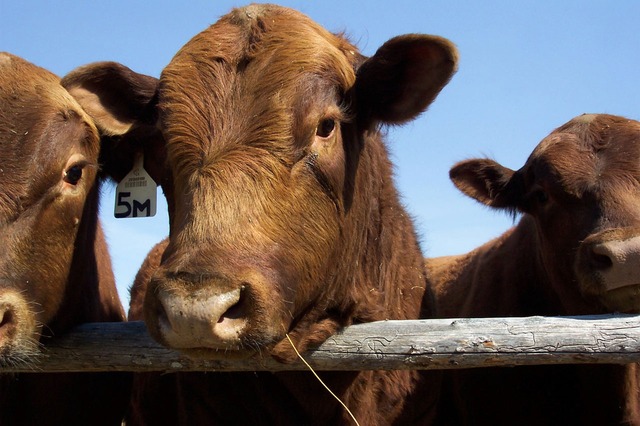Major Farm Groups to Trump: Adopt GIPSA Rules
Posted on January 18, 2017

For almost a month now, we’ve watched what DTN Ag Policy Editor Chris Clayton calls “the visceral political fight” over three changes to livestock marketing rules proposed by the U.S. Department of Agriculture’s Grain Inspection, Packers and Stockyards Administration, or GIPSA.
“Visceral” is a fitting word to describe Big Meat’s reaction to the Dec. 14 rules announcement. Meatpackers and their contracting partners at the National Pork Producers Council (NPPC), the National Chicken Council (NCC), and the National Cattleman’s Beef Association (NCBA) hate the proposed rules and made their view plain that day.
The NPPC, however, went even further. It called the proposed rules an “apparent attack on rural America for its role in helping elect Donald Trump president.”
Secretary of Agriculture Tom Vilsack labeled that hair-on-fire analysis as “absolutely absurd.”
The Secretary was too kind; NPPC’s reaction was 100 percent baloney. It, like its contract-enforcing packer pals, of course knew the proposed rules originated in the pre-Trump 2008 Farm Bill. Big Meat’s political allies in Congress, however, effectively bottled up the changes after Republicans retook the House in 2010.
That ended in 2016 when Congress approved USDA’s funding without the previous years’ GIPSA handcuffs. Free to follow the law—the bipartisan 2008 Farm Bill law—USDA did its duty: it released the long-in-waiting rules Dec. 14. Big Meat went to DEFCON 1 an instant thereafter.
In perfect contrast to the packer-captured meat groups, however, the nation’s two largest general farm groups, the American Farm Bureau Federation (AFBF) and the National Farmers Union (NFU), offered vigorous endorsements for all three GIPSA proposals.
AFBF’s president, Zippy Duvall, a Georgia poultry farmer, noted the rules, if finalized, will “better protect individual farmers from discriminatory treatment” in the market, provide “greater transparency,” “…hold companies accountable and give farmers a voice.”
NFU’s president, Roger Johnson, agreed and added that ag’s ultimate customers, consumers, are also winners under the new rules. “Both producers and consumers benefit when the markets are competitive and the practices and process are transparent,” he offered.
But that’s precisely what the Big Boys hate about the rules: all provide more sunshine to livestock and poultry markets that now are dominated by in-the-dark, contract production.
For example, GIPSA’s interim rule would allow farmers and ranchers to “only prove they were treated unfairly by a company to win a legal remedy,” explained Chuck Abbott for the Food and Environmental Reporting Network Dec. 15.
It would replace today’s standard that requires the producer to provide proof “that harm has been done to the entire market” before any individual is granted relief. That’s like a high school quarterback singlehandedly beating the Dallas Cowboys in the Super Bowl. It will never happen unless the field is leveled.
Which is what all three GIPSA rules do, says Iowa’s GOP Sen. Charles Grassley. The rules “enjoy bipartisan support in Congress [and] I’m glad [USDA acted] to help level the playing field…”
But that political support will be quickly tested because a Trump-led USDA can kill the interim rule and two proposed rules by simply withdrawing them without fanfare or even a tweet.
Right now, however, that choice will carry a heavy political cost. The packer-backed meat groups claim Trump is their rule-killing, free market champion so he must, and will, withdraw the GIPSA rules.
AFBF, NFU, and other groups like the Organization for Competitive Markets see it differently. They point to “working” rural Americans—and, in particular, farmers and ranchers—as Trump’s core political supporters. He wouldn’t betray them for Big Meat right out of the box, would he?
Politics aside, there’s a better reason to keep GIPSA’s proposed Farmer Fair Practices Rules: It’s the right thing to do for farmers, ranchers, and all Americans who believe in fair play and open, transparent markets.
© 2017 ag comm
Share This